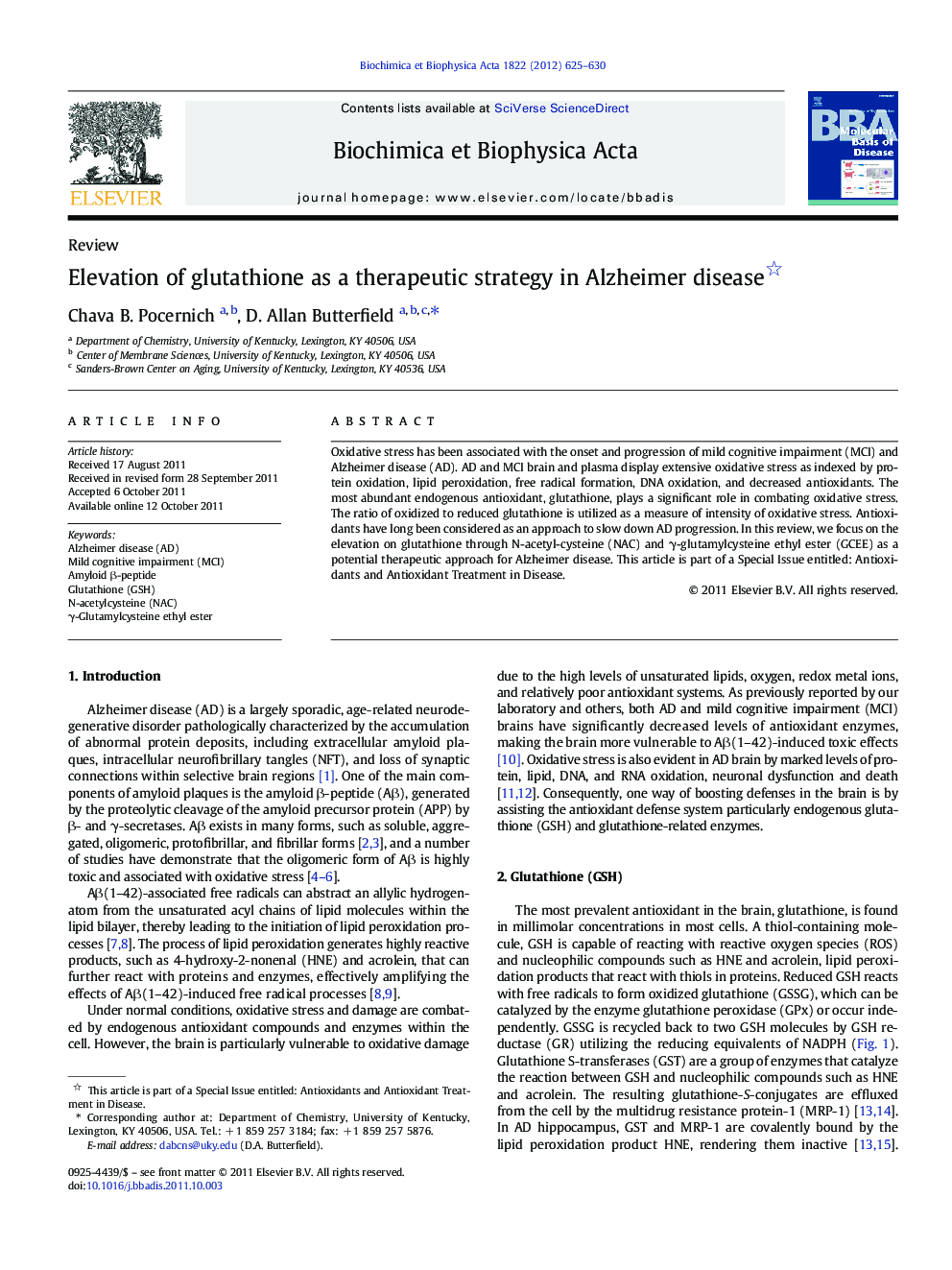| Article ID | Journal | Published Year | Pages | File Type |
|---|---|---|---|---|
| 1905039 | Biochimica et Biophysica Acta (BBA) - Molecular Basis of Disease | 2012 | 6 Pages |
Oxidative stress has been associated with the onset and progression of mild cognitive impairment (MCI) and Alzheimer disease (AD). AD and MCI brain and plasma display extensive oxidative stress as indexed by protein oxidation, lipid peroxidation, free radical formation, DNA oxidation, and decreased antioxidants. The most abundant endogenous antioxidant, glutathione, plays a significant role in combating oxidative stress. The ratio of oxidized to reduced glutathione is utilized as a measure of intensity of oxidative stress. Antioxidants have long been considered as an approach to slow down AD progression. In this review, we focus on the elevation on glutathione through N-acetyl-cysteine (NAC) and γ-glutamylcysteine ethyl ester (GCEE) as a potential therapeutic approach for Alzheimer disease. This article is part of a Special Issue entitled: Antioxidants and Antioxidant Treatment in Disease.
►Glutathione (GSH) is the most abundant endogenous antioxidant in brain. ►Oxidative stress is a prominent feature of Alzheimer disease and MCI brain. ►Elevation of GSH in vivo protects brain against AD-relevant A beta(1–42). ►Elevation of GSH in brain induces several protective pathways.
